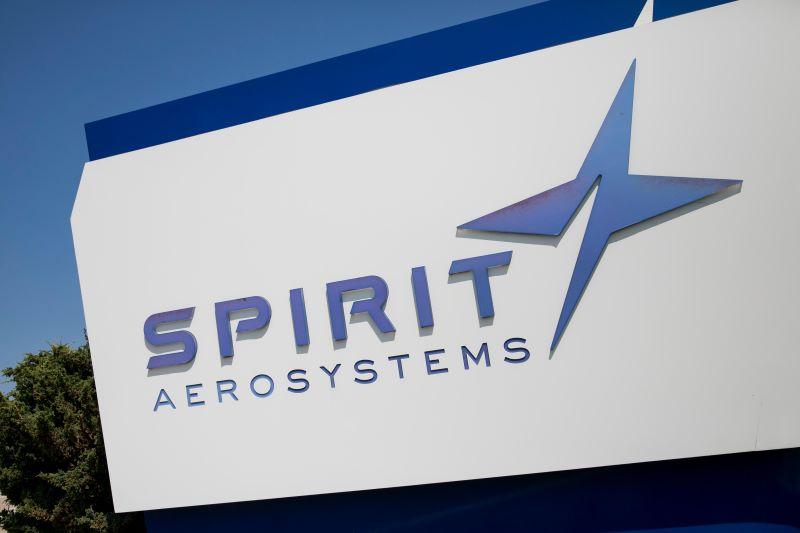
The financial report was so bad it raised an existential question: What if airframer Boeing offered to buy back the Wichita aerostructures operations of Spirit AeroSystems, would Spirit be open to it?
“We’re a public company,” Spirit CEO and President Tom Gentile said. “People can make offers for public companies, and we would respond to those things. I have no idea what Boeing’s plans are related to something like that.”
Gentile answered the answer posed by a Bank of America financial analyst during the key Tier 1 supplier’s first-quarter 2023 results teleconference May 3. The question came after Spirit reported disappointing results for the first three months of the year. It also confirmed the current second quarter and rest of the year will be rougher in part due to new costs associated with fixing the 737 MAX tail fin assembly issue.
While seemingly farfetched, the analyst question about a Boeing takeover comes as Spirit—which was part of Boeing until a 2005 spinout—enters a new era of challenges. Executives and investors previously had thought Spirit would be rising above the aftermath of Boeing’s MAX crisis and the pandemic’s commercial downturn by now. Instead, the company admittedly is facing another wrenching year, at least.
“While the OEMs are never going to let Spirit fail, it is now in a form of indentured servitude that will severely impact its future cashflow,” analysts at Vertical Research Partners said. “For many investors, Spirit continues to be seen as a geared way of playing a potential recovery at Boeing Commercial Aircraft, and for us that is a risky call.”
Spirit managers acknowledged the difficulty. “Looking ahead, the rework and disruption from the vertical fin attach fitting issue, as well as the risk of lower 737 deliveries, will have a negative impact on free cash flow this year,” Gentile said. “The forward losses taken during the quarter will also result in additional pressure in our cash flows.”
Spirit previously had guided that its free cashflow should be “better than breakeven” in 2023, but now it is forecasting a $100-150 million cash burn in total by end of year.
Yet even those figures belie the challenge. In April, when the tail fin issue was revealed, Spirit received $280 million worth of cash advances from its major customers, including $180 million from Boeing. Executives told analysts that $230 million will be received this quarter, with the rest in the fourth quarter. Spirit expects to repay the advances in 2024 and 2025. However, Spirit is categorizing these advances and repayments as debt, rather than cashflow, and thus excluding them from the estimated cash-burn forecast above.
Spirit still does not know what the ultimate cost of the tail fin issue will be. The company estimates that it will cost $31 million to perform the work on 737s yet to be delivered to Boeing, at roughly $100-150,000 per airplane. Spirit’s rework could wrap up by July.
But Spirit leaders acknowledged Boeing could seek compensation for its own rework on MAXs already delivered to airline and lessor customers, and Boeing’s rework will be more expensive because more is involved with reworking a finished aircraft. “Additional costs are expected but cannot be reasonably estimated at this time,” Spirit said in presentation materials.
For its part, Spirit is counting on increased 737 production to help counter the debt and cash burn. The aerostructures giant expects to raise monthly production of ship sets to 38 in August and 42 in October, according to managers. The supplier now expects to deliver 390-420 fuselages in 2023.
For the first quarter, Spirit reported revenue of $1.4 billion, up 22% from the same quarter in 2022. Net loss was $281 million compared with a $53 million loss the year before. Loss per share was $2.68 over $0.51. The results—for the last period before the tail fin issue emerged—included $110 million of forwarded losses on Spirit’s work on the Airbus A220, A350 and Boeing 787 programs, as well as almost $12 million in unfavorable cumulative catch-up adjustments.
“We think investors had expected a poor quarter from Spirit given the well-known 737 fin issue, but the expected cost of fixing that has been dwarfed by yet more charges on existing OEM programs, most notably $81 million on the Airbus A220 program,” Vertical analysts noted. “With charges on the 787 and A350 also being called out, Spirit is clearly struggling with a host of operating issues at the moment.”
